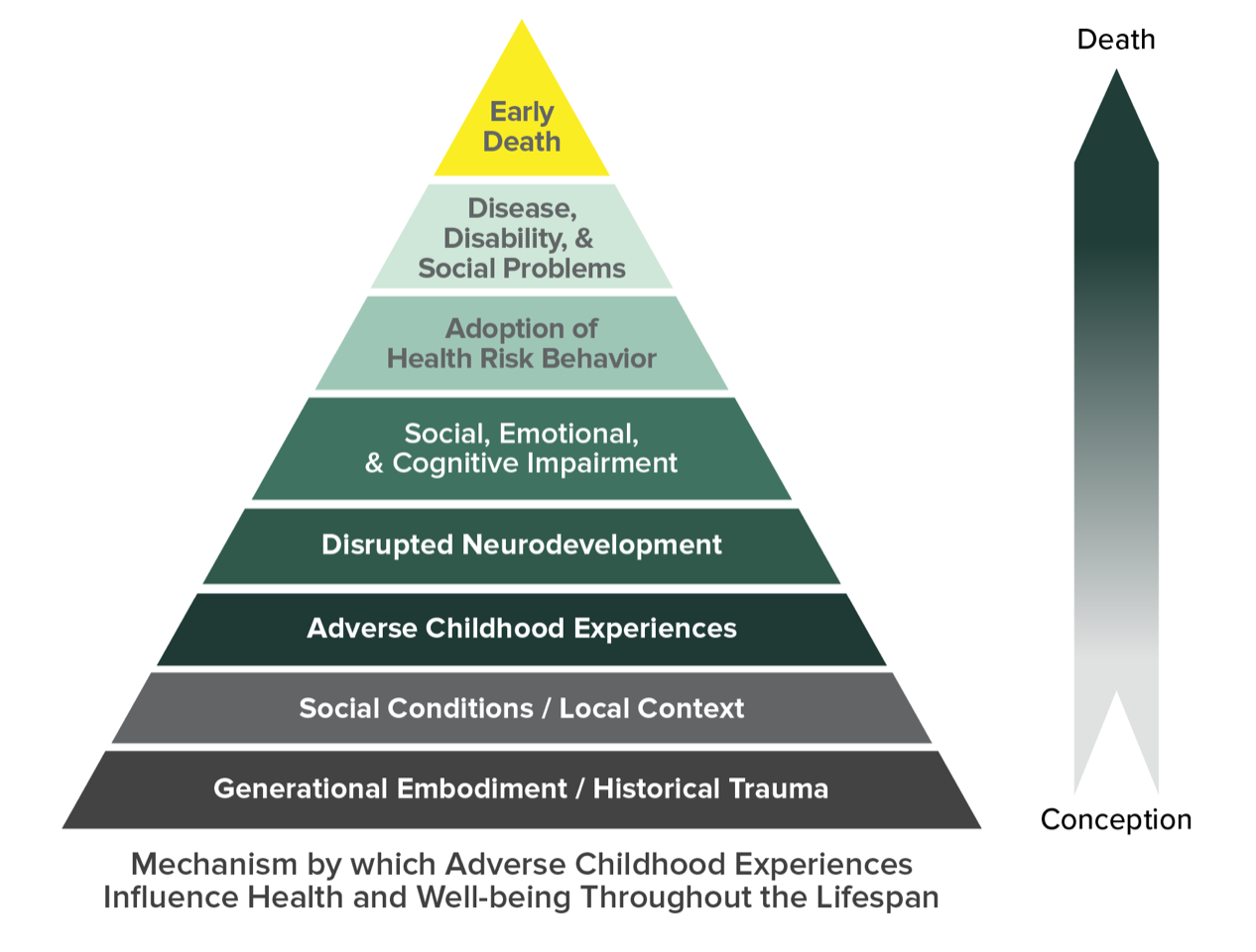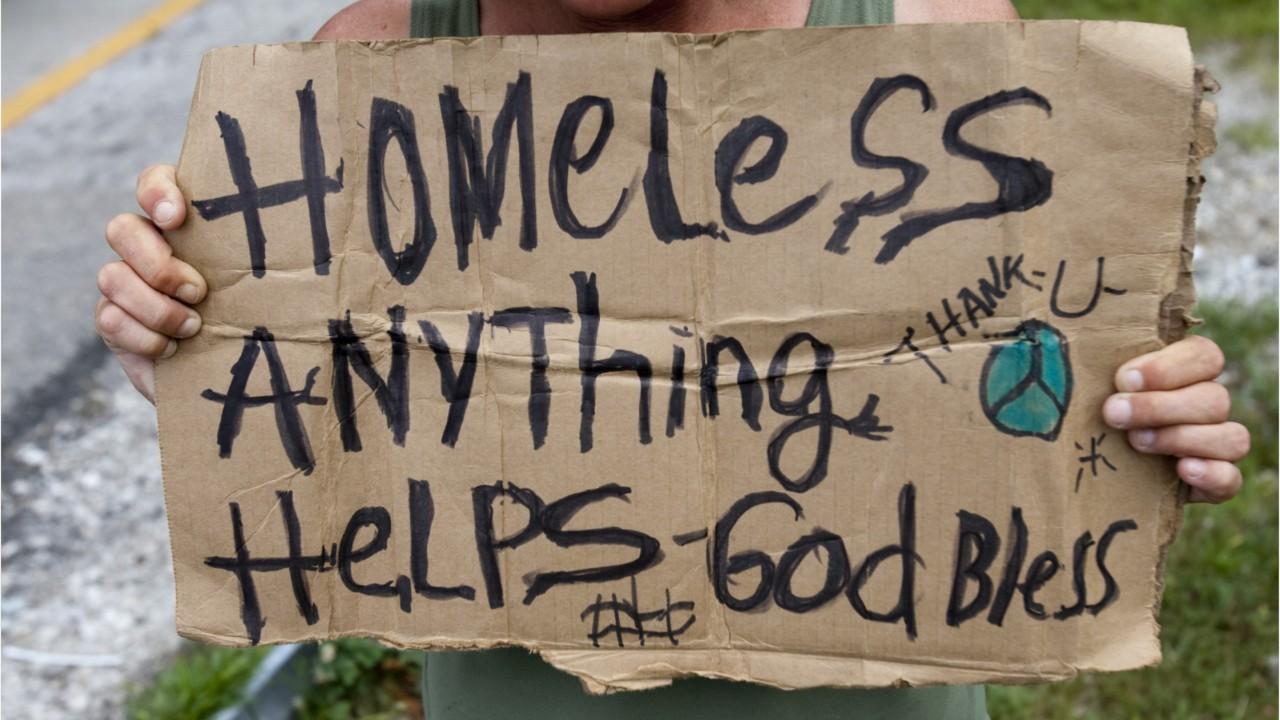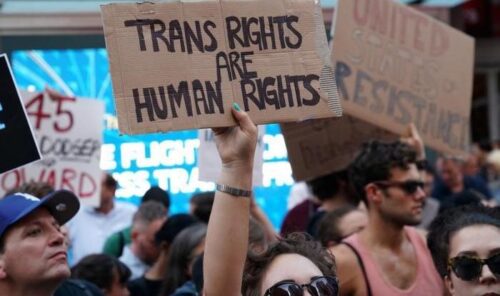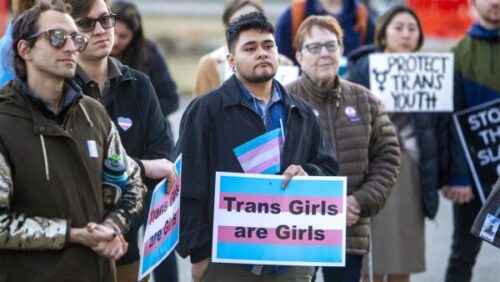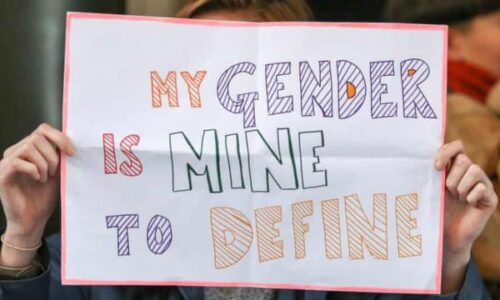
As we saw in Part 1, in 1914 and again in 1939, millions of men and women welcomed war. Arnold Ridley and his pals did make this choice, but in reality the choice had been made for them by decades and centuries of the relentless ‘patriotic’ propaganda described by Tolstoy, which most people were powerless to resist.
The enthusiasm for war seems immensely significant. It tells us that, facing the ultimate test of self-interestedness – whether they were willing to risk being shot, burned, blasted and horribly mutilated in the ‘national interest’ – many millions of people put that self-interest aside and marched off to kill and be killed.
This fact alone should encourage us to question the extent to which our capacity to be self-interested – to work for our own benefit over the imposed demands of others – is undermined more generally. Erich Fromm described the reality:
Our moral problem is man’s indifference to himself. It lies in the fact that we have lost the sense of the significance and uniqueness of the individual, that we have made ourselves into instruments for purposes outside ourselves, that we experience and treat ourselves as commodities.
In her remarkable book, ‘For Your Own Good – Hidden cruelty in child-rearing and the roots of violence’, psychologist Alice Miller traced the roots of Nazi militarism in wildly popular pedagogical theories that flourished in 18th, 19th and early 20th century Germany.
Did Nazi stormtroopers arise out of an orgy of self-centred self-indulgence? In fact, they were nurtured by what Miller called a ‘poisonous pedagogy’ that crushed the will of the child, destroying the child’s ability to follow his or her own feelings and self-interest.
Miller quoted J. Sulzer from his highly popular book published in Germany in 1748, An Essay on the Education and Instruction of Children. Sulzer commented on infant behaviour:
They see something they want but cannot have; they become angry, cry, and flail about. Or they are given something that does not please them; they fling it aside and begin to cry. These are dangerous faults that hinder their entire education and encourage undesirable qualities in children… The moment these flaws appear in a child, it is high time to resist this evil so that it does not become ingrained through habit and the children do not become thoroughly depraved.
Therefore, I advise all those whose concern is the education of children to make it their main occupation to drive out willfulness and wickedness and to persist until they have reached their goal.
The chief target for attack, wrote J.G. Kruger in Some Thoughts on the Education of Children (1752) was defiance:
Such disobedience amounts to a declaration of war against you. Your son is trying to usurp your authority, and you are justified in answering force with force in order to insure his respect, without which you will be unable to train him. The blows you administer should not be merely playful ones but should convince him that you are his master. Therefore, you must not desist until he does what he previously refused out of wickedness to do.
In Handbook for Fathers and Mothers of Families and Nations (1773), J. B. Basedow recommended additional beatings in response to the inevitable, ‘annoying’ tears:
If after the chastisement the pain lasts for a time, it is unnatural to forbid weeping and groaning at once. But if the chastised use these annoying sounds as a means of revenge, then the first step is to distract them by assigning little tasks or activities. If this does not help, it is permissible to forbid the weeping and to punish them if it persists, until it finally ceases after the new chastisement.
The conscious aim was to destroy the will of the child and replace it with the will of parents and teachers. Sulzer wrote:
…willfulness must be the main target of all our toils until it is completely abolished… The first and foremost matter to be attended to is implanting in children a love of order; this is the first step we require in the way of virtue.
Sulzer noted that it was vital to break children at an age when they would be unable to remember what had been done to them:
One of the advantages of these early years is that then force and compulsion can be used. Over the years, children forget everything that happened to them in early childhood. If their wills can be broken at this time, they will never remember afterwards that they had a will, and for this very reason the severity that is required will not have any serious consequences.’ (Miller, my emphasis.)
Miller commented:
If primary emphasis is placed upon raising children so that they are not aware of what is being done to them or what is being taken from them, of what they are losing in the process, of who they otherwise would have been and who they actually are, and if this is begun early enough, then as adults, regardless of their intelligence, they will later look upon the will of another person as if it were their own. How can they know that their own will was broken since they were never allowed to express it? (Miller, my emphasis.)
In 1858, D.G.M. Schreber explained how this cultivated in the child ‘the art of self-denial’: ‘the salutary and indispensable process of learning to subordinate and control his will’.
Do we imagine these efforts to break the will of children, to teach them ‘the art of self-denial’, were limited to pre-Nazi Germany? In a comment that will be familiar to many of us in our time, Miller quoted a German schoolteacher (1796) explaining how he promoted obedience:
I reward the one who is the most amenable, the most obedient, the most diligent in his lessons by preferring him over the other; I call on him the most, I permit him to read his composition before the class, I let him do the necessary writing on the blackboard. This way I awaken the children’s zeal so that each wishes to excel, to be preferred. When one of them then upon occasion does something that deserves punishment, I reduce his status in the class, I don’t call on him, I don’t let him read aloud, I act as though he were not there. This distresses the children so much that those who are punished weep copious tears.
Miller commented:
I have selected the foregoing passages in order to characterize an attitude that reveals itself more or less openly, not only in Fascism but in other ideologies as well. The scorn and abuse directed at the helpless child as well as the suppression of vitality, creativity, and feeling in the child and in oneself permeate so many areas of our life that we hardly notice it anymore.’ (Miller, my emphasis.)
Yes, in many areas of our life! The evidence is all around us and deeply rooted in our cultural traditions. For example, German pedagogues loved to quote the Bible:
He who loves his son chastises him often with the rod, that he may be his joy when he grows up’, and, ‘Pamper your child and he will be a terror for you, indulge him and he will bring you grief.
‘The Prime Coercive Instrument For Cultural Modification‘
Are we pursuing freely-chosen self-interest when forced to wear uniforms and trained for conformity and ambition at school? Is it our choice to be manipulated to feel exalted when we do better at exams than our friends and humiliated when we do worse? Is it self-indulgence that has us spending our precious youth memorising dead facts and figures for regurgitation, supposedly establishing our level of ‘brightness’? Is there any essential difference between the way we are manipulated to become cogs in the educational machine, the corporate machine and the war machine?
Sobering perspective is supplied by cultural anthropologist John Bodley’s description of the methods employed by Western colonisers to undermine traditional cultures:
In many countries schooling has been the prime coercive instrument of cultural modification and has proven to be a highly effective means of destroying self-esteem, fostering new needs, creating dissatisfactions, and generally disrupting traditional cultures. As representatives of the prestige and power of the dominant culture, teachers deliberately assume positions of authority over students, overshadowing parents and traditional tribal leaders…
Training us for ambition is about far more than just boredom and stress. Every moment in the classroom, the child’s natural prioritisation of the present moment is, in effect, outlawed. No choice is allowed – the childish love of play must be sacrificed to the educational Higher Cause. We quickly learn that we will suffer serious, escalating consequences if we follow our instincts. This powerfully undermines our ability to be sensitive to, and to follow, our feelings, our true self-interest. Time and again, we are taught to reject our natural inclinations – to reject what we find most fascinating and enjoyable for the sake of what we find utterly boring. We learn that we cannot safely be in the moment, that the price of respecting our feelings is too high – we must prioritise the future and the opinions of authority.
Our capacity to feel and respect our feelings is subject to relentless attack. If we don’t know what we feel, we don’t know what we want. And if we don’t know what we want, state-corporate interests are free to decide for us.
As the leftist poster says, ‘If you liked school, you’ll LOVE work.’ Education dovetails perfectly as we replace black or grey school uniforms with black or grey work suits, pack ourselves into trains, buses and cars to perform as cogs in corporate machines, allowed an hour off for lunch and four or five weeks ‘annual leave’ (extra ‘leave’, possibly paid, or not, if we suffer a ‘blighty one’). All of this we hate, but we have already been trained to do what we hate, to perform relentlessly boring tasks at school, to override our internal opposition, which we cannot properly feel.
We are also not following our self-interest when we sit in front of the TV to watch corporate entertainment filtered of all but the most banal, advertiser-friendly content. As media analysts Michael Jacobson and Laurie Ann Mazur noted, our freedom extends to watching ‘TV programmes that flow seamlessly into commercials, avoiding controversy, lulling us into submission, like an electronic tranquillizer.’ The last thing advertisers want is for us to be so interested in the programme we’re watching that we’re lost in thought during the ad break.
It is not you or I who decides that happiness lies in high status work facilitating high status consumption, any more than we decide it is ‘glorious’ to die in battle. Again, Bodley reflects our own contemporary experience:
One of the most significant obstacles blocking native economic “progress” was the ability of the natives to find satisfactions at relatively low and stable consumption levels… Outsiders quickly realised that if tribal peoples could somehow be made to reject the material satisfactions provided by their own cultures and if they could be successfully urged to desire more and more industrial goods, they would become far more willing participants in the cash economy.
As late as 1963, applied anthropologist Ward Goodenough described Western strategies to undermine the contentment found in traditional cultures:
The problem that faces development agents is to find ways of stimulating in others a desire for change in such a way that the desire is theirs independent of further prompting from outside. Restated, the problem is one of creating in another a sufficient dissatisfaction with his present condition of self so that he wants to change it. This calls for some kind of experience that leads him to reappraise his self-image and re-evaluate his self-esteem.
This is the same process of manufacturing discontent by which you and I are targeted. US psychologist Tim Kasser commented:
Existing scientific research on the value of materialism yields clear and consistent findings. People who are highly focused on materialistic values have lower personal well-being and psychological health than those who believe that materialistic pursuits are relatively unimportant. These relationships have been documented in samples of people ranging from the wealthy to the poor, from teenagers to the elderly, and from Australians to South Koreans.
Where, then, is the freedom that allows us to be considered self-interested, self-centred, self-indulgent? It doesn’t exist. The call for us to sacrifice ourselves thrusts a red-hot poker into a wound of imposed self-neglect that has made us such well-schooled, career-climbing, war-fighting, self-destructive pawns of state policy, corporate profit and, yes, revolutionary fervour.
Our problem is not that we are too indulgent, too selfish. Our problem is that we are not self-centred enough; that we are manipulated, seduced, punished, conformed away from exploring, feeling and respecting our actual self-interest. We are made to seek happiness in very specific ways by systems of power that need us to be unhappy, discontented, and even to die in wars, in ways that benefit them.
This has been disastrous, not simply because our real self-interest has been hijacked, but because our whole society has become oblivious to a buried treasure of human experience found at the end of an authentic exploration of self-interest. It is a truth that has been understood by cultures around the word for millennia, but is almost completely unknown to our primitive Western corporate monoculture.
The Man With No Skin
What happens when we are genuinely self-interested, self-centred? What happens when we don’t subordinate self-awareness to external pressures?
Consider the case of Jean-Jacques Rousseau, unique among 18th century Enlightenment philosophes in that he retained extreme sensitivity and respect for his feelings. Rousseau radically bucked the trend promoting ‘man’s indifference to himself’.
The Scottish philosopher, David Hume, who knew Rousseau well, described him as ‘one of the most singular of all human beings… his extreme sensibility of temper is his torment’; ‘he is like a man who were stripped not only of his clothes but of his skin’.
Rousseau felt every pleasure, every pain, every delight and despair, deeply. It was this acuity of awareness that helped him uncover a hidden secret of the human condition.
Remarkably, Rousseau’s final work, Reveries of The Solitary Walker, written in the two years before his death in 1778, contains a basic guide to what amounts to ‘zazen’ meditation (‘zazen’ sounds esoteric but literally means ‘just sitting, doing nothing’). As clearly as any Eastern mystic, Rousseau began by describing the inevitable failure of ordinary happiness:
Thus our earthly joys are almost without exception the creatures of a moment; I doubt whether any of us knows the meaning of lasting happiness. Even in our keenest pleasures there is scarcely a single moment of which the heart could truthfully say: “Would that this moment could last for ever!” And how can we give the name of happiness to a fleeting state which leaves our hearts still empty and anxious, either regretting something that is past or desiring something that is yet to come?
Readers might like to conduct this thought experiment for themselves! Looking back, it is clear that even our happiest moments are tainted by fear of change, failure and loss.
Attainment of some object of desire gives momentary pleasure, then, but our minds remain ‘empty and anxious’ – we quickly latch onto some other person, experience or object ‘yet to come’, and desire reaches out into this new, alluring distance. The distance is alluring because it provides us with a blank or half-empty canvas on which we can project our idealised fantasies. Desire is endless, insatiable, because the mind quickly tires of reality, but not of fantasy, our inexhaustible dream fuel.
Two and a half centuries before ‘mindfulness’ became the rage, Rousseau wrote:
Foresight! Foresight which is ever bidding us look forward into the future, a future which in many cases we shall never reach. Here is the real source of all our troubles! How mad it is for so short-lived a creature as man to look forward into a future which he rarely attains, while he neglects the present which is his!… We no longer live where we are, but where we are not!
If we reject self-abnegation, self-sacrifice, and investigate how we actually feel, we arrive at the key understanding that it is impossible to satisfy a mind that ‘neglects the present’, that values only what it does not have. Corporate culture being, of course, the ultimate manifestation and exploitation of this phenomenon.
Ironically, we are so readily seduced by calls to sacrifice ourselves precisely because the mind is ever ready to sacrifice the devalued present – all the ‘uninteresting’ stuff that we have here and now – for some fantasy-hyped future. We spend our lives aspiring to the next moment, sure to be a ‘glorious adventure’, even if that means fighting and dying on some distant battlefield.
Along with mystics like Buddha, Bodhidharma, Chuang Tzu, Ikkyu, Jesus, Kabir, Krishna, Lao-tse, Mansoor, Meera, Nanak, Patanjali, Tolle and Yoka, the ultra-sensitive Rousseau came to understand that all attempts to find happiness in external pleasures and ‘success’ fail. The end-point of self-aware self-indulgence, he found, is a great turning point – a turning within. But what on earth might we find there?
As we all know, our standard search for external happiness generates a torrent of mental activity: we must forever plan, scheme, worry and strive to shorten the distance between ourselves and our ever-retreating, ever-changing goals. Having attained one desire, another instantly pops up on the horizon and mental activity surges again.
But when, time after time, this exhausting campaign fails, when the futility of the effort becomes undeniable because we can see that every attainment ‘leaves our hearts still empty and anxious’, mental activity can start to subside. This may happen naturally as the search for external happiness is met with disillusionment and disaster, or it can be consciously encouraged through meditation, by paying careful attention to our thoughts and feelings. We cannot think and feel at the same time – repeatedly focusing on emotions in our chest, for example, interrupts and slows compulsive thinking.
As mental chatter subsides, gaps start to appear between thoughts. In even the briefest moments when this happens, in tiny silences between thought, something completely unexpected occurs – deep delight arises from nowhere for no apparent reason. This is not just happiness; it is ecstasy, a bliss saturated with love for everyone and everything. Even a sliver of this ‘light’ is devastating, but the potential exists to experience an inner supernova. Kabir said:
As if thousands of suns have arisen in me… I cannot count them, the light is so dazzling.
Rousseau discovered this phenomenon simply by paying close attention to his suffering and happiness:
But if there is a state where the soul can find a resting-place secure enough to establish itself and concentrate its entire being there, with no need to remember the past or reach into the future, where time is nothing to it, where the present runs on indefinitely but this duration goes unnoticed, with no sign of the passing of time, and no other feeling of deprivation or enjoyment, pleasure or pain, desire or fear than the simple feeling of existence, a feeling that fills our soul entirely, as long as this state lasts, we can call ourselves happy, not with a poor, incomplete and relative happiness such as we find in the pleasures of life, but with a sufficient, complete and perfect happiness which leaves no emptiness to be filled in the soul. Such is the state which I often experienced in my solitary reveries on the Island of Saint-Pierre…
As Osho commented, this experience is the revolutionary moment in the life of a human being:
Now you are nothing but misery. Those who are cunning, they go on deceiving themselves that they are not miserable, or they go on hoping that something will change, something will happen, and they will achieve at the end of life – but you are miserable.
You can create faces, deceptions, false faces; you can go on smiling continuously, but deep down you know you are in misery. That is natural. Confined in thoughts you will be in misery. Unconfined, beyond thoughts – alert, conscious, aware, but unclouded by thoughts – you will be joy, you will be bliss.
This is why Jesus made the extraordinary comment that has mystified non-meditators for millennia: ‘Resist not evil’. It is not that turning the other cheek, or giving someone your cloak as well as your shirt, is best practice for managing bullies and petty criminals.
The point, as Jesus also said, is that ‘The kingdom of heaven lies within’ – the experience described above. If a choice is possible, it is better to go the extra mile to avoid conflict so that we can remain centred in this inner love and bliss. When we resist external ‘evil’, we inevitably generate great storms of thought in ourselves and others, which obstruct love and bliss in them and us. The remarkable truth is that, for all its practical usefulness, thought is subtly dehumanising, and torrential thought is deeply dehumanising.
The best measure of the extent to which our society is truly civilised is the number of loving feelings in our hearts, not the number of loving, just, egalitarian thoughts in our heads. Thought is hot air. Disconnected from feeling, it means almost nothing.
‘Ehi-Passiko’ – ‘Come And See!’
The central claim is not a fantasy, not an invention; it is a simple but almost completely hidden truth: confined in thoughts we will be in misery; unconfined, beyond thoughts, we will be in ‘complete and perfect happiness’.
This, not collapsing on the sofa with junk food, is the end-point of self-aware self-centredness: a limitless source of loving kindness that naturally overflows to others in what we say and do.
It is a truth that can be known only through feeling, through the heart, when we are free to experience and respect our emotions, unhindered by calls to sacrifice ‘trivial’, ‘indulgent’ personal concerns to ‘duty’, ‘service’, the ‘national interest’, the ‘Fatherland’, the ‘Revolution’.
Of course, thinking is needed; of course, working for the benefit of others, and even subordinating our welfare for others, can be a beautiful thing; but the most beautiful thing of all is when we subordinate everything to a profound investigation into what does and does not make us miserable and blissful.
Without this investigation, we may end up doing more harm than good. As Norman Mailer said:
I think that the only way socialism can work is if there is a religious core. A belief that there is some larger sense of things.
Otherwise, Mailer argued, ‘you just get the play of egos’.
Alas, trying ‘to make the world a better place’ is a prime way of winning attention, applause, respect, even fame outside the corporate ‘mainstream’. If the rich and famous feel ‘special’, what to say of ‘altruists’, so heroic that they subordinate their personal concerns, risk their very lives, for the welfare of others?
If our motivation is attention, applause, we may look like a counter-force to ego-driven, state-corporate capitalism, but, in fact, we may be a version of the same madness, almost a kind of niche marketing. Like corporate executives, we will compete furiously with the rival activists we are supposed to be supporting, tear them down at the first opportunity for utterly trivial reasons (rational disagreement on key issues is another matter entirely). Above all, we will be highly vulnerable to the seductions of a ‘mainstream’ that has the power to bestow far more respectability, fame and fortune.
Rooted in our heads rather than our hearts, we will be miserable and spreading that misery around us. Regardless of what virtue we claim as our motive, our first priority will be, not other people, but the expansion of our egoic empire. We will contribute to the building of a ‘righteous’ but ugly world where barely a drop of genuine love and happiness is found.
To those so keen for us to sacrifice ourselves for a Higher Cause we can answer that there is no Higher Cause than the pursuit of self-aware self-interest because this is the only way to become a genuinely blissful, genuinely loving human being. And only when we become genuinely blissful and loving are we able to resist the calls to sacrifice ourselves on some distant educational, corporate, or actual battlefield.
The insatiable, tragicomic craving of the Trumpian ego – to have more, to be more, to spend more, to consume more, to be applauded more – can never be transcended on the level of the mind. Only when we experience genuine happiness, a loving bliss with no taint of suffering, do the baubles and toys of ego start to lose their appeal.
As Buddha said, there is no need to take his or anyone else’s word for it: ‘Ehi-passiko’, ‘Come and see!’ Try it for yourself – all is not as it seems.

This article was posted on Wednesday, February 17th, 2021 at 11:04pm and is filed under Children/Youth, General, Philosophy, Students.
This post was originally published on Radio Free.
 with the pretext it needed to commence a relentless onslaught in the name of keeping the world safe for petroleum. This brings me to a forgotten anniversary. While August 6, 2021, of course, marks the 76th anniversary of the willful nuking of civilians in Hiroshima by the Home of the Brave
with the pretext it needed to commence a relentless onslaught in the name of keeping the world safe for petroleum. This brings me to a forgotten anniversary. While August 6, 2021, of course, marks the 76th anniversary of the willful nuking of civilians in Hiroshima by the Home of the Brave , it also marks 31 years since the U.S. war against Iraq was initially launched.
, it also marks 31 years since the U.S. war against Iraq was initially launched.  .
.












